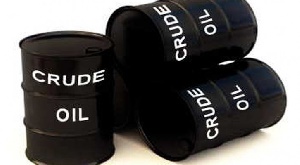The steep decline in the price of petroleum products on the global front during the 2015 business year has impacted negatively on the national economy, with a loss of US$470.59million in total petroleum receipts from the country’s hydrocarbons sector.
According to the PIAC report on the management and use of revenue from petroleum activities in the country, total petroleum receipts in the year under review amounted to US$396.17million compared to the 2014 figure of US$978.59million.
The 2015 figure which was a 60 percent year-to-year decline was realised from the estimated 37,411,661 barrels of crude oil that were lifted from the Jubilee Field, and that brings the total barrels of oil produced from the field to 161,929,171 since 2010.
Government’s representative in the petroleum business, Ghana National Petroleum Commission (GNPC), lifted 5,730,090 barrels of crude oil - representing 15.42 percent of the total production.
Chairman of PIAC, Paul Kingsley Buah-Bassuah, told journalists at the annual report’s launch in Accra that the sharp decline was due to weak revenue recovery mechanisms in the hydrocarbons sector on the back of sustained price volatility for crude oil in the year under review.
According to him, the Ghana Revenue Authority and Petroleum Commission were lax with the collection of monies owed and due government from oil and gas activities in the country.
Per the PIAC report, an estimated US$4.182million is owed government in surface rentals alone by companies in the oil and gas business—with Oranto/Stone Energy taking up US$3.46million of the total amount owed.
Also, US$20.21million representing five percent of total receipts was paid by the Jubilee Partners as corporate tax, a year-to-year drop of 92 percent compared to the 2014 figure of US$284.55million.
Prof. Buah-Bassuah indicated: “The Petroleum Commission and Ghana Revenue Authority (GRA), should seriously look into the huge debt that is owed Ghana by the oil companies.
“Revenue collection was low as far as the 2015 annual report is concerned; since we rely heavily on the collection of taxes as a nation, if we are not firm in tax collection we cannot get the revenue required to spend.”
The PIAC report further cautioned government to adhere strictly to the four approved areas to be funded from the ABFA Expenditure and Amortisation of Loans for Oil/Gas Infrastructure, Road and Other Infrastructure, Agriculture Modernisation and Capacity Building—as frivolous expenses could harm the economy.
Prof. Buah-Bassuah added: “Projects that the oil money should be spent on must be sustainable; secondly it is urgent, and the oil money is the only resource available to undertake such projects.
“I don’t see the reason why we can use the oil money for capitation to pay better fees to teachers, feed schoolchildren, or pay allowances: that is not what the oil money is meant for.”
Business News of Friday, 24 June 2016
Source: B&FT

















